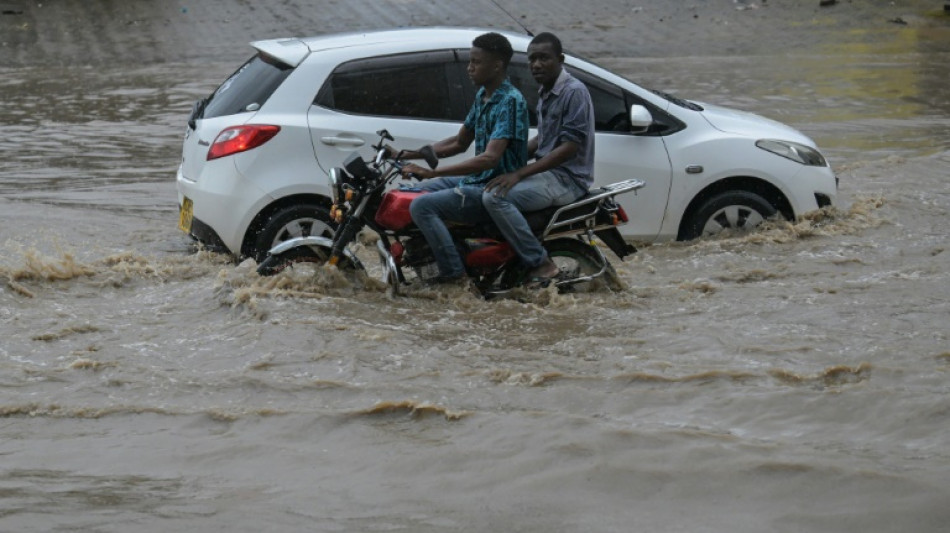
RYCEF
0.0200


The impacts of climate change could shave up to seven percent off Kenya's economic output by 2050 compared to baseline forecasts, unless it adapts, the World Bank warned on Friday.
The East African economic powerhouse is extremely vulnerable to climate disasters, recently enduring a punishing years-long drought followed by flooding precipitated by the El Nino weather phenomenon.
"Without adaptation measures, the impact from climate change could not only disproportionately affect the poor, but also result in real GDP (gross domestic product) losses of up to seven percent from the baseline by 2050," the World Bank said.
Although African nations are among the world's lowest contributors to emissions, they are acutely vulnerable to the growing impacts of climate change, as extreme weather events occur with increased frequency and intensity.
The World Bank said that the number of poor people in Kenya could increase by 1.1 million by 2050 if there is "inaction against climate change".
"Furthermore, death and illness due to malaria and water borne diseases are expected to increase by 56 percent and 10 percent respectively by 2050," the Washington-based lender said.
The country of 53 million people will need $62 billion by 2030 to adapt its economy to climate challenges, according to the government.
"Financing to increase Kenya's resilience to climate change will require both domestic resources and expanding climate-compatible private investment in existing areas, such as livestock feed and tourism, and emerging sectors, such as e-mobility and green energy," the World Bank said.
But Kenya's government has limited room for manoeuvre, with its coffers depleted as it struggles to contain skyrocketing inflation and a plunging currency that has sent debt repayment costs soaring.
The country's public debt stood at more than 10.1 trillion shillings ($66 billion) at the end of June, according to Treasury figures, equivalent to around two-thirds of GDP.
Kenya also has a $2-billion eurobond repayment due next year.
The agriculture sector, which is the top contributor to Kenya's economy, representing around 21 percent of GDP in 2022, has already come under pressure from drought and torrential rains.
W.Knight--TFWP